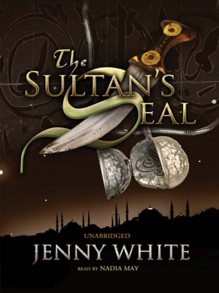The Last Girl: My Story of Captivity, an...

The Last Girl: My Story of Captivity, and My Fight Against the Islamic State, Nadia Murad, author; Amal Clooney*, foreward; Ilyana Kadushin, narrator
That something like what is described in the pages of this book could occur in a society of human beings is appalling. This is one of the most heartbreaking descriptions of brutality and violence that I have read, apart from the books about the Holocaust. This genocide was carried out without regard for human dignity or suffering. Religious fanatics, attempting to recreate the Caliphate, murdered and captured the Yazidi people with abandon, and the world largely watched it happen.
The Yazidi religion is described as a combination of the three major religions: Islam, Christianity and Judaism. Their religion has aspects of each religion with respect to worship, prayer, and dress. They are a simple people with their superstitions, customs, and codes of proper behavior to guide them. There is no written book for them, however. The traditions and culture are passed down orally by specially selected Yazidi who are tasked with that effort. There are some aspects, like honor killings, that I found reprehensible, but what happened to the Yazidi people is equally, if not more, reprehensible.
Forced from their homes and moved by Saddam Hussein to make Iraq more Arab, they were then attacked by ISIS. They were viewed by the extremists to be fair game because they had no written book. They were, therefore, unforgivable infidels. Because sex before marriage was forbidden, they abused the women they kidnapped and told them they were ruined and would not be accepted back into their world. Fear and pain were tools used with abandon by men and women who were followers of ISIS, who accepted their brand of brutality.
The author lost many members of her family during the time ISIS was capturing towns and villages, among them her own, in Kocho. Women were forced to convert. They were raped. The infirm were murdered. Young boys were forced to be soldiers or used as human shields to protect the cowardly members of ISIS. Those who witnessed the mass murders and brutality turned a blind eye, perhaps out of fear, perhaps out of their agreement with the goals ISIS.
Today, Nadia Murad is an activist and works to help those abused and to prevent further kidnappings and massacres. Her description of the events she witnessed and experienced may be simple, but it is so vivid and detailed that the reader will be forced to visualize the heinous and vicious treatment of the Yazidis, imprinting it on their own memories as it is imprinted on Nadia’s. It has to be emphasized that it was only through the grace of God and some kind Iraqis that Nadia was able to escape.
Nadia admits that although life was better after the Americans took over, it was followed by horror. Tribal issues rose to the surface; Sunnis, Kurds, Shites and Yazidis butted heads. Religious factions rebelled. The war was poorly executed and promises that were made went unfulfilled. Hope for the future died, for many, with the development of ISIS and Al Qaeda, with the rise of fundamental Islamic, radical terrorists.
The book, although not long, describes Nadia’s happy life before the war, reveals the atrocities committed after her capture, details her return to civilization in Germany, and than as an activist. She has resettled in Germany, but will always be an Iraqi, in her heart. However, her home is gone, ransacked and destroyed. Now, she dedicates her life to helping others who are less fortunate than she was and rejoices with the family members who have survived and those that can be rescued.
Nadia states that she learned that words could be used against you as weapons, a valuable lesson, since people interpret words differently. How apropos to consider those words in the divisive political atmosphere that exists today in the America. Mobs become protesters; illegal aliens are transformed into undocumented workers depending on which side of the political spectrum one sits. When appeals are made to emotion rather than intellect, people suffer, when fear and identity are used as tools people grow hopeless. Couple that with a lack of power and they are also helpless. No one would come to their aid.
When the last page is turned, the reader can’t help but wish it had been a novel, rather than non-fiction! The awful cruelty and blood bath committed by members of ISIS and its followers is hard to wrap ones head around and accept.
The Yazidis were caught between haters in a war they did not want, but they hoped that America would save them. However, Obama abandoned them and allowed the terrible acts committed by ISIS to continue and proliferate. Yazidis were kidnapped for ransom, women were used as sex slaves, boys were forced to be soldiers, belongings were looted and destroyed, and many Yazidis were simply murdered in cold blood. Because conversion and intermarriage is forbidden to Yazidis, their numbers have been diminished. To continue, they must have large families. Muliple wives are permitted, so perhaps their numbers will rise.
Nadia was happy once, although her family was poor. Her home was filled with love and laughter. Now she lives to prevent further atrocities, to rescue those that she can, and she hopes one day to see those who commit such acts of terror to be punished and brought to justice. They should not escape untouched.
*Amal Clooney is the lawyer who represented Nadia so she could tell her story to let the world know of the plight of the Yazidis and the crimes of ISIS and the Islamic state. She is the wife of actor George Clooney.


 Log in with Facebook
Log in with Facebook 










